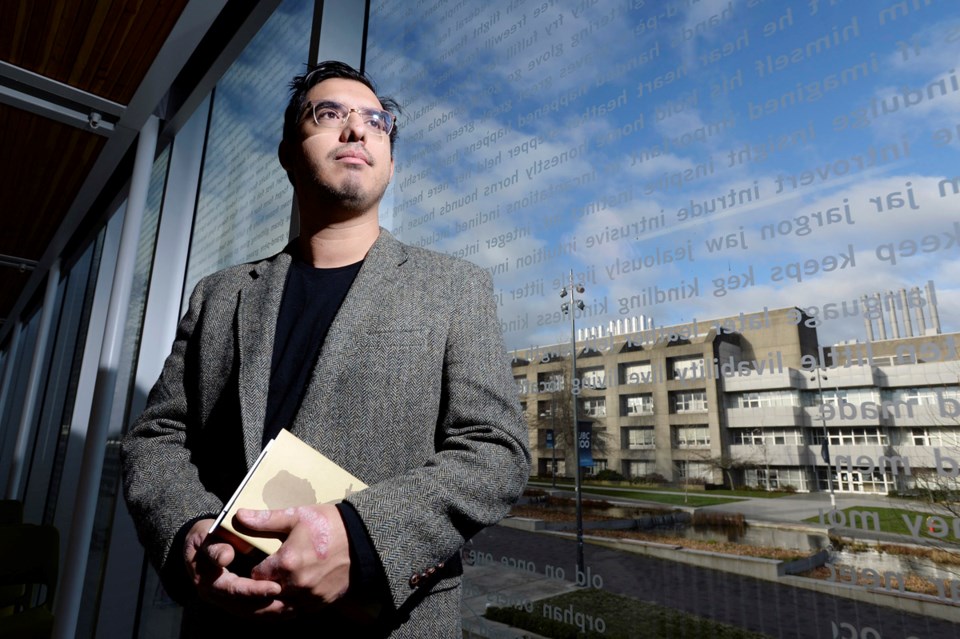When I saw that a Catholic church was hosting something called “Atheism, Doubt and the Search for God,” I figured I knew the good-versus-bad message this three-evening series would impart.
Apparently I am too cynical for Sam Rocha, assistant professor in UBC’s department of educational studies and a pastoral philosopher-in-residence at St. Mark’s College, the Catholic college on the Point Grey campus.
Rocha is offering the program on three consecutive Monday nights starting next week at St. Joseph’s the Worker parish in Richmond.
“There is a general kind of allergic reaction in Christian communities, in the Roman Catholic Church as well, to atheism,” he says, yet both theists and atheists are frequently interested in the same questions and have much to learn from one another.
He views atheism as a respectable belief system dating to pre-Christian times.
“It’s a very rich intellectual tradition going all the way back to the Greeks, which is also in some sense the same Hellenic line that you find a lot of Christian notions,” Rocha says. “The notion of the soul that Paul talks about in Romans, also at the end of Acts when he goes to Athens, that’s kind of a Greek idea that Plato came up with and it’s been Christianized.”
He refuses to see atheism as something necessarily antagonistic to Christianity or to religion.
“When we look at some of the more recent versions of atheism, in particular one of the most famous atheists, Friedrich Nietzsche, I think there are a lot of religious preoccupations that get expressed. Nietzsche had a beautiful understanding of spirit,” he says. “And all the German idealists, atheists, had a feeling for something beyond the material but that nonetheless didn’t quite reach transcendence.”
This contrasts however, he says, with the so-called New Atheism, personified by Sam Harris, Richard Dawkins and the late Christopher Hitchens.
“I think the New Atheists are probably the least interesting atheists,” Rocha says. “The New Atheism is built on a very particular doctrine of scientism… a creed you could say is a very strict kind of scientism that doesn’t leave a lot of room for discussion.”
Yet there is a type of contemporary atheist that Rocha enjoys spending time with and believes believers could learn from: people who are interested in the human condition but see religion as an easy out. These are deep-thinking atheists who struggle with the same existential questions religious people address through their faith.
“They’re not trying to break outside of the big questions, they’re just trying to come up with different ways of answering them,” he says. These may be people who are philosophical descendants of the Romantics, of German idealism or of Rousseau, he says.
“These are people who see something like a religious principle, but they see it in the world,” he says. “They see it sometimes in nature, sometimes they see it in the intellect or in reason but, again, they’re interested in the really big stuff. Whereas, the New Atheists tend to laugh at the big questions … and reduce it down usually to scientific reductions.”
Still, why would fine, upstanding, believing Catholics spend three consecutive Mondays learning about atheism?
“Especially for Catholics, but I think this applies across the board for many religions, in many cases I think this allergic reaction we ascribe to atheism is out of a certain ignorance of the intellectual tradition,” he explains. “The atheism that’s motivated by a skeptical attitude is in some sense fascinated with the world, it’s not afraid of it. To me, the Christian religious impulse to question and wonder is also motivated out of a similar principle.”
Believers and non-believers, if they are inquisitive and open-minded, he suggests, are both striving to confront the same big questions that have confounded every civilization since the dawn of time. Yet Christians and atheists are too often, he says, terrified of each other.
Rocha suggests that a believer, instead of being repelled by everything associated with atheism, can find a core characteristic within the atheist position that they can use to enrich their own beliefs.
“On the other hand,” he says, “should I get the fortune of having atheists in the group, I would say the opposite. It’s not so much to say the atheists should become theists, nor that the theists should become atheists, but I think there are [positions] that each side can use in a fruitful and practical way, within whatever their own journey is for their own search.”
Is he suggesting the crazy idea we should all, theist or atheist, ponder more? Rocha laughs.
“Why don’t you give your conscience a chance to think about this,” he asks, “and maybe you’ll find that there is a sense of doubt deeply instilled in the atheist disposition that is actually a great tool for finding and seeking the face of God?”
pacificspiritPJgmail.com
@Pat604Johnson



